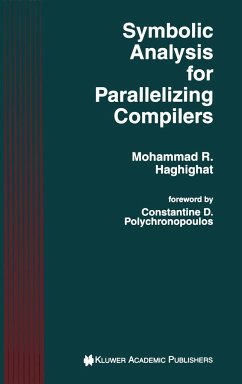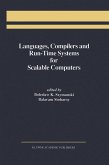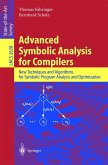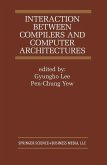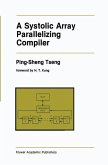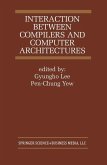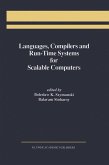In Symbolic Analysis for Parallelizing Compilers the author presents an excellent demonstration of the effectiveness of symbolic analysis in tackling important optimization problems, some of which inhibit loop parallelization. The framework that Haghighat presents has proved extremely successful in induction and wraparound variable analysis, strength reduction, dead code elimination and symbolic constant propagation. The approach can be applied to any program transformation or optimization problem that uses properties and value ranges of program names. Symbolic analysis can be used on any transformational system or optimization problem that relies on compile-time information about program variables. This covers the majority of, if not all optimization and parallelization techniques.
The book makes a compelling case for the potential of symbolic analysis, applying it for the first time - and with remarkable results - to a number of classical optimization problems: loop scheduling, static timing or size analysis, and dependence analysis. It demonstrates how symbolic analysis can solve these problems faster and more accurately than existing hybrid techniques.
Hinweis: Dieser Artikel kann nur an eine deutsche Lieferadresse ausgeliefert werden.
The book makes a compelling case for the potential of symbolic analysis, applying it for the first time - and with remarkable results - to a number of classical optimization problems: loop scheduling, static timing or size analysis, and dependence analysis. It demonstrates how symbolic analysis can solve these problems faster and more accurately than existing hybrid techniques.
Hinweis: Dieser Artikel kann nur an eine deutsche Lieferadresse ausgeliefert werden.

